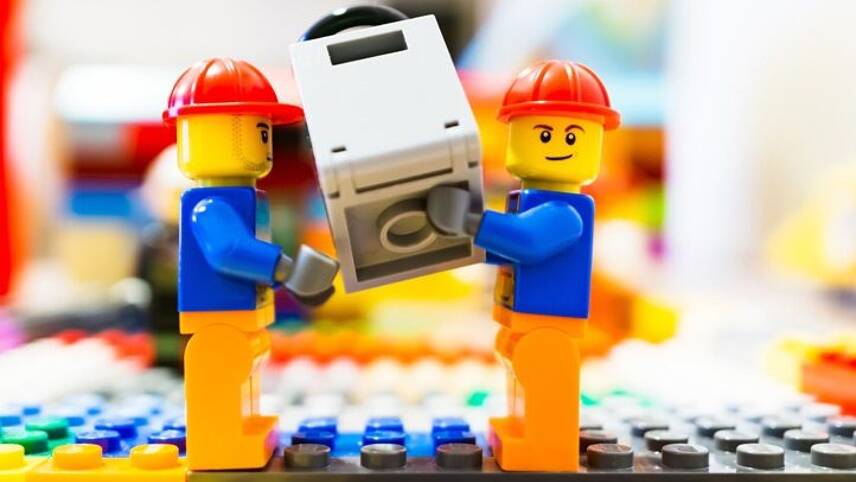Register for free and continue reading
Join our growing army of changemakers and get unlimited access to our premium content

Lego has said that making the transition will require a multi-million-pound investment
The Danish toymaker’s chief executive Niels B. Christiansen announced the new goal on Friday (7 February), telling journalists that Lego is “testing lots of different materials” to replace virgin fossil-based plastic.
Some plastic products could be replaced by sustainably sourced wood, but Lego believes the majority of the material gap left by the virgin, fossil plastics phase-out could be met with recycled materials or bioplastics.
Lego first moved to incorporate sugarcane-based bioplastic into its products in 2018, when it began selling botanical-themed pieces made from responsibly sourced bio-polyethene. The launch received much media attention and the range has received positive feedback from consumers so far – but as of 2019, only 1-2% of Lego’s total plastics product output was bio-based.
In order to scale up the bio-plastic and recycled plastic supply chain, Lego’s Christiansen has vowed to make a multi-million-pound investment.
“I think we will see gradual progress, and then some big leaps,” he told Danish newspaper Borsen.
“This is not an easy task, and we have only come some of the way.”
Christiansen also vowed that Lego’s new products will be just as durable and colourful as the acrylonitrile-butadiene-styrene-based toys which currently account for more than 90% of its product portfolio.
The building blocks of change
Lego first announced an aim to use entirely ‘sustainable’ materials in its products in 2017, but did not, at the time, set a deadline.
Since then, it has not only upped investment in alternative materials, but in product reuse too. In October 2019, Lego forged a partnership with recycling charity Give Back Box to enable consumers to donate old bricks to be redistributed to children’s non-profits in the US. It has also included more prominent messaging around Lego re-use in its advertising campaigns, encouraging consumers to pass them on to friends, family or charity.
Lego’s Group’s director of zero impact Andrew McMullen recently attended an edie roundtable on responsible retail, where he said: “The ability to rethink the way you fundamentally create value for your customers and shareholders will reap great opportunity.
“The purpose of Lego is… not to sell bricks [but]… to get kids to play and be creative.”
Sarah George


Correction: should read as, ‘Danish newspaper B rsen’.